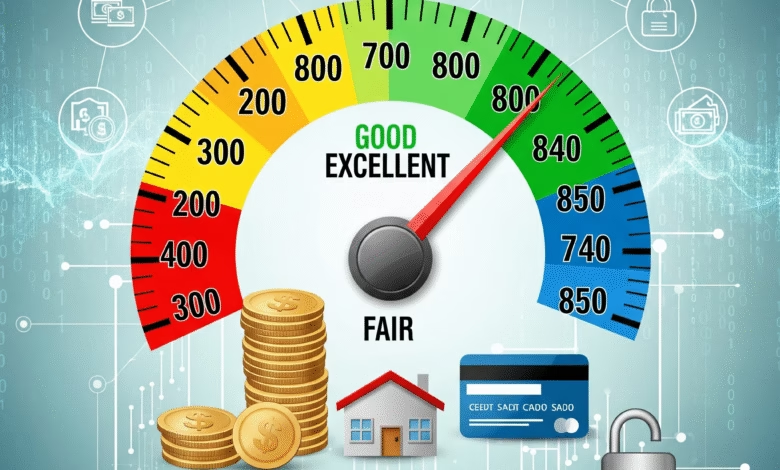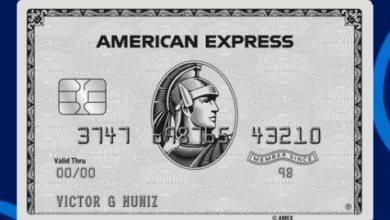Discover the main mistakes that harm your credit score
9 Common Mistakes That Are Killing Your Credit Score

Your credit score is one of the most vital components of your financial life. This three-digit number acts as a quick snapshot of your creditworthiness, dictating to lenders how reliable you are as a borrower. A strong score can unlock the door to the best mortgage rates, premium credit cards, and low-interest auto loans, saving you a fortune over your lifetime. A poor score, however, can make these goals much harder—and more expensive—to achieve.
Many people watch their score drop and are left wondering, “What did I do wrong?” Often, the damage isn’t from one catastrophic event, but from a series of small, seemingly harmless missteps. These common mistakes can silently chip away at your credit health, leaving you with limited financial options when you need them most.
This in-depth guide is designed to shine a light on these score-wrecking behaviors. We will break down the most frequent errors people make, explain exactly how they damage your score, and provide actionable strategies to help you avoid them and start building a stronger financial future today.
Mistake #1: Making Late Payments (The #1 Credit Score Killer)

If your credit score had a cardinal sin, this would be it. Your payment history is the single most important factor in your credit score, accounting for a massive 35% of your FICO® Score. Lenders are primarily concerned with one question: “If we lend this person money, will they pay it back on time?” A history of late payments is the clearest possible sign of risk.
A payment is officially reported to the credit bureaus as late once it’s 30 days past its due date. A single 30-day late payment can slash your score by up to 100 points, and the negative mark will stay on your credit report for seven years. The later the payment—60 days, 90 days, or a charge-off—the more severe and lasting the damage.
How to Avoid This Mistake:
- Automate Everything: The surest way to never miss a payment is to set up autopay for at least the minimum amount due on all your accounts. This creates a safety net.
- Set Up Digital Alerts: Use your credit card apps and bank portals to set up email or text message reminders a few days before your due date.
- Act Immediately if You Miss a Date: If you’re only a day or two late, make the payment immediately. Lenders often don’t report the delinquency until the 30-day mark. You can also call your creditor, explain the situation, and politely ask if they will waive the late fee and refrain from reporting it as a courtesy.
Mistake #2: Maxing Out Your Credit Cards (High Credit Utilization)
After payment history, the second most influential factor is “amounts owed,” which makes up 30% of your FICO® Score. This isn’t just about the total dollar amount of your debt; it’s about your credit utilization ratio (CUR)—the percentage of your available credit that you are using.
Formula:
If you have a credit card with a $10,000 limit and a $9,000 balance, your CUR is 90%. This is a major red flag for lenders. A high CUR suggests that you are over-reliant on credit to manage your expenses and may be at a higher risk of defaulting. While there’s no magic number, the general rule is to keep your utilization below 30%. For the best scores, aim for under 10%.
How to Avoid This Mistake:
- Monitor Your Balances: Don’t wait for your monthly statement. Log in to your accounts regularly to see how much you’ve spent.
- Make Multiple Payments: If you need to make a large purchase, you can immediately pay it down before your statement closing date. The balance reported to the bureaus is the one on your statement, so paying it down early keeps your reported CUR low.
- Request a Credit Limit Increase: A higher limit will instantly lower your CUR. You can often request this directly through your card issuer’s website.
Mistake #3: Closing Your Oldest Credit Card Accounts

This is a classic blunder that many people make with the best intentions. They decide to “simplify” their finances by closing an old credit card they no longer use. However, this can backfire by damaging the length of your credit history (15% of your FICO® Score).
Your score benefits from a long, established history of responsible borrowing. When you close your oldest account, the average age of all your accounts drops, which can cause your score to dip. Additionally, you lose the credit limit associated with that card, which can cause your overall credit utilization ratio to spike.
How to Avoid This Mistake:
- Keep No-Fee Cards Open: If the old card doesn’t have an annual fee, keep it open. Use it for a small, recurring purchase (like a Netflix subscription) every few months to keep it active, and pay it off immediately.
- Downgrade Instead of Closing: If the card has a high annual fee, call the issuer and ask for a “product change” to a no-annual-fee card within the same family. This preserves the account history and credit line.
Mistake #4: Applying for Too Much New Credit at Once
Every time you formally apply for new credit, the lender performs a “hard inquiry” on your report. This new credit category accounts for 10% of your FICO® Score. While one or two inquiries will only have a minimal and temporary impact, a flurry of applications in a short period is a warning sign.
To lenders, this behavior can indicate that you are in financial distress and are desperately seeking funds. It makes you appear to be a much higher risk.
How to Avoid This Mistake:
- Apply Strategically: Only apply for credit that you genuinely need and have a high chance of being approved for.
- Space Out Applications: As a general rule, wait at least six months between credit card applications.
- Use Pre-Qualification Tools: Most major lenders offer tools that check your likelihood of approval with a “soft inquiry,” which does not affect your credit score.
Mistake #5: Co-Signing a Loan for Someone Else

Co-signing a loan for a friend or family member is a significant risk that many people underestimate. When you co-sign, you are not just a character reference; you are legally 100% responsible for the entire debt.
If the primary borrower misses a payment—even by one day—it is considered your missed payment. Any late payments will be reported on your credit report and will damage your score just as if it were your own loan. If they default, you will be on the hook for the full amount, and your credit will be severely damaged.
How to Avoid This Mistake:
- Just Say No: This is often the wisest financial decision. Politely explain that you cannot take on the financial risk.
- Understand the Full Risk: If you absolutely must co-sign, do so with the full expectation that you may have to make the payments yourself. Ensure you have access to the account statements so you can monitor that payments are being made on time.
Mistake #6: Completely Avoiding Credit and Debt
It seems counterintuitive, but having no credit history can be just as problematic as having a bad credit history. If you’ve always paid for everything with cash or a debit card, lenders have no data to analyze. You become a “credit ghost.”
Without a credit report or score, it’s nearly impossible to get approved for a mortgage, an auto loan, or even a standard credit card. You need to demonstrate a history of responsible borrowing to be considered creditworthy.
How to Fix This:
- Open a Secured Credit Card: This is a card where you provide a cash deposit that typically becomes your credit limit. It’s an excellent tool for beginners to build an initial credit history.
- Become an Authorized User: Ask a family member with excellent credit to add you as an authorized user on one of their long-standing credit cards. Their positive history can help you establish a score.
Mistake #7: Not Checking Your Credit Reports for Errors

Your credit reports—maintained by Equifax, Experian, and TransUnion—are not infallible. According to a study by the Federal Trade Commission (FTC), a significant percentage of consumers have errors on their reports that could negatively impact their scores.
These errors can range from incorrect personal information to accounts that don’t belong to you or a payment that was mistakenly reported as late. If you don’t check, you’ll never know.
How to Avoid This Mistake:
- Get Your Free Reports: You are entitled to a free copy of your credit report from all three bureaus once a week through the official website: AnnualCreditReport.com.
- Dispute Errors Immediately: If you find an error, file a dispute with the credit bureau online. By law, they must investigate your claim and correct any inaccuracies.
Mistake #8: Ignoring Small, Unpaid Bills

That forgotten $50 medical co-pay, an old utility bill from a previous apartment, or an unpaid library fine might seem insignificant. However, if the company sells that debt to a collections agency, it can be reported to the credit bureaus. A collection account is a highly derogatory mark that can devastate your credit score and remain on your report for seven years, even after you’ve paid it.
Mistake #9: Believing Common Credit Score Myths
Misinformation can lead to poor decisions. Believing common myths can be just as damaging as any other mistake.
- Myth: “Carrying a small balance helps your score.” Fact: Paying your balance in full every month is the best practice. It saves you money on interest and leads to a better credit utilization ratio.
- Myth: “Checking my own credit score will lower it.” Fact: Checking your own score is a “soft inquiry” and has zero impact on your score. It’s a healthy financial habit.
- Myth: “Debit cards build credit.” Fact: Debit cards are linked directly to your bank account. Your activity is not reported to credit bureaus and has no effect on your credit score.
By steering clear of these common pitfalls, you can protect your credit score from unnecessary damage and build a strong foundation for your financial future. Your credit score is a long-term asset; treat it with the care it deserves.





